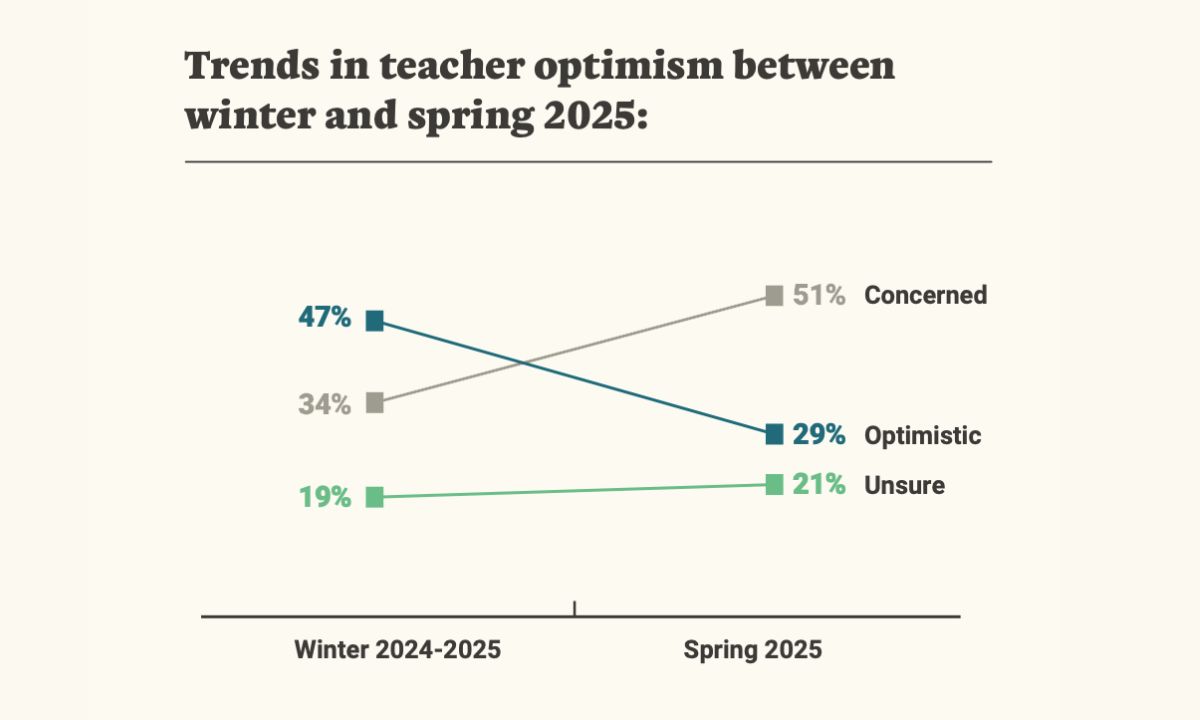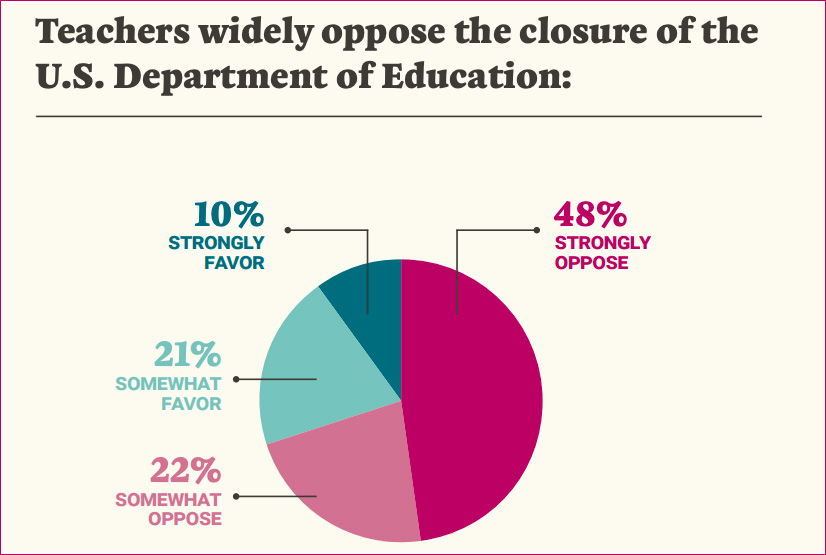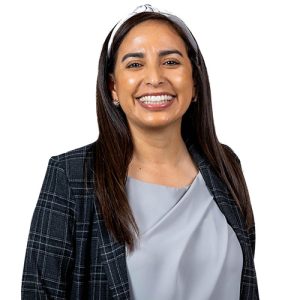Teachers Wary of Shuttering the Education Department, More Optimistic About AI
Tadros, Lopez, and Pope: Federal and local decisions continue to be made without the voices of teachers who know students and classrooms best.

Get stories like this delivered straight to your inbox. Sign up for The 74 Newsletter
Teaching in 2025 is a paradox. On one hand, it’s a time of new and exciting possibilities: evidence-backed curricula, artificial intelligence and creative staffing models hold real promise to transform the profession and student learning. On the other hand, the Trump administration’s push to dismantle the U.S. Department of Education threatens the very foundation of our schools.
One thing is clear: Federal and local decisions continue to be made without the voices of teachers who know students and classrooms best.
That’s why we, as part of a group of 17 public school teachers from across the country, did what the Trump administration and Secretary of Education Linda McMahon have not: We asked educators what they think. Through Voices from the Classroom 2025, we surveyed a nationally representative sample of 1,000 public school teachers, with additional oversamples of 300 teachers of color and 300 Gen Z teachers, to understand their views on the future of education.

Voices from the Classroom 2025: A Survey of America’s Educators (Educators for Excellence)
The message is clear: Teachers reject the Trump administration’s education agenda. Seventy percent oppose dismantling the Education Department, and only 29% feel optimistic about its impact on schools, with 51% expressing outright concern. There’s still time to change the trajectory of public education, but that window is closing. What we do next matters.
Of course, many of these challenges predate the current administration. Slow and steady declines in teacher satisfaction — only 19% recommending the profession to others —
make clear that public education’s challenges are deep and systemic. What gives us hope is that teachers have practical, powerful solutions that can transform the profession.
Teachers are optimistic about investments in high-quality instructional materials and professional development, especially in literacy and math. Eighty-five percent say their districts support implementation, a marked improvement from last year. Yet, with 81% still relying on material beyond the established curriculum, district and state leaders must sustain this momentum to address persistent learning loss in reading and math.
Many educators we surveyed also support collaborative staffing models. Nearly three-quarters of teachers agree with approaches like co-teaching and team teaching to strengthen professional collaboration. Many also call for expanded use of support staff, such as tutors and paraprofessionals, to further address students’ needs. At a time when the profession continues to struggle with morale and retention, these alternative teaching models — which eschew the one-teacher, once-classroom model in place for centuries — offer a clear and promising pathway toward improved student outcomes.
And while still new, the transformative power of AI in the classroom is quickly gaining traction. The number of teachers who believe AI can positively transform teaching and learning more than doubled in the past year, from 14% to 30%. Yet, only 48% report clear school AI policies, highlighting an urgent need for professional development.
Viewed together, the results point to a broader, more meaningful takeaway: Teachers are ready for change and ready to lead that change. Whether it’s transforming the profession with high-quality instructional materials and aligned professional supports, innovations in staffing, or technology in the classroom, educators are embracing what works best for a modern classroom.
However, realizing the future that teachers envision requires leaders at every level to listen, starting at the top. It’s time leaders like President Trump and Secretary McMahon listen to educators and start giving them a seat at the table when decisions are made about their classrooms. Teaching in 2025 may be a paradox, but one thing is certain: when educators are heard, we can reimagine education, not dismantle it.
The authors are part of the National Teacher Leader Council, a two-year cohort of 17 teachers from across six local chapters of Educators for Excellence, a teacher advocacy organization that ensures educators have a leading voice in shaping policies.
Get stories like these delivered straight to your inbox. Sign up for The 74 Newsletter

;)

